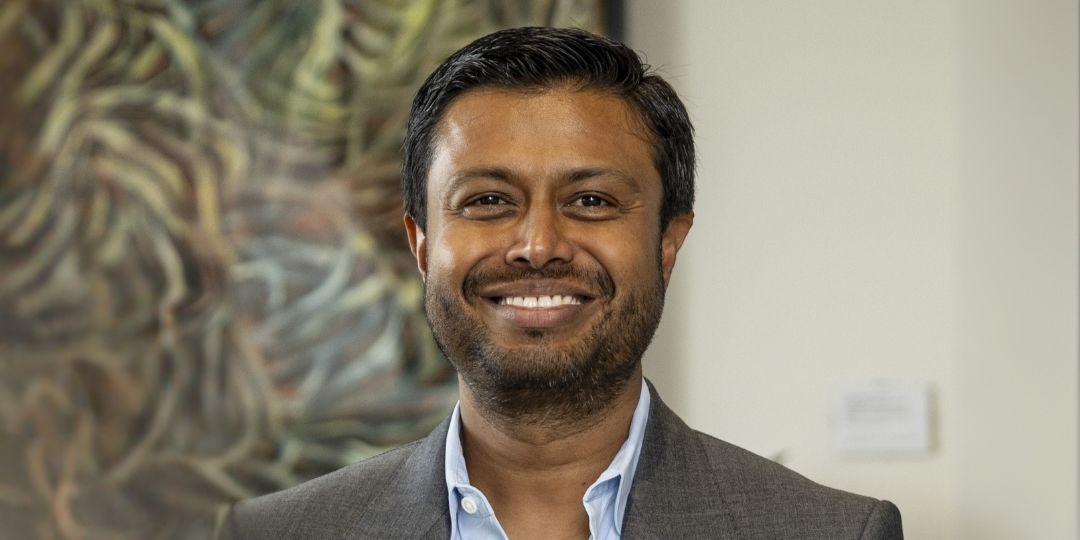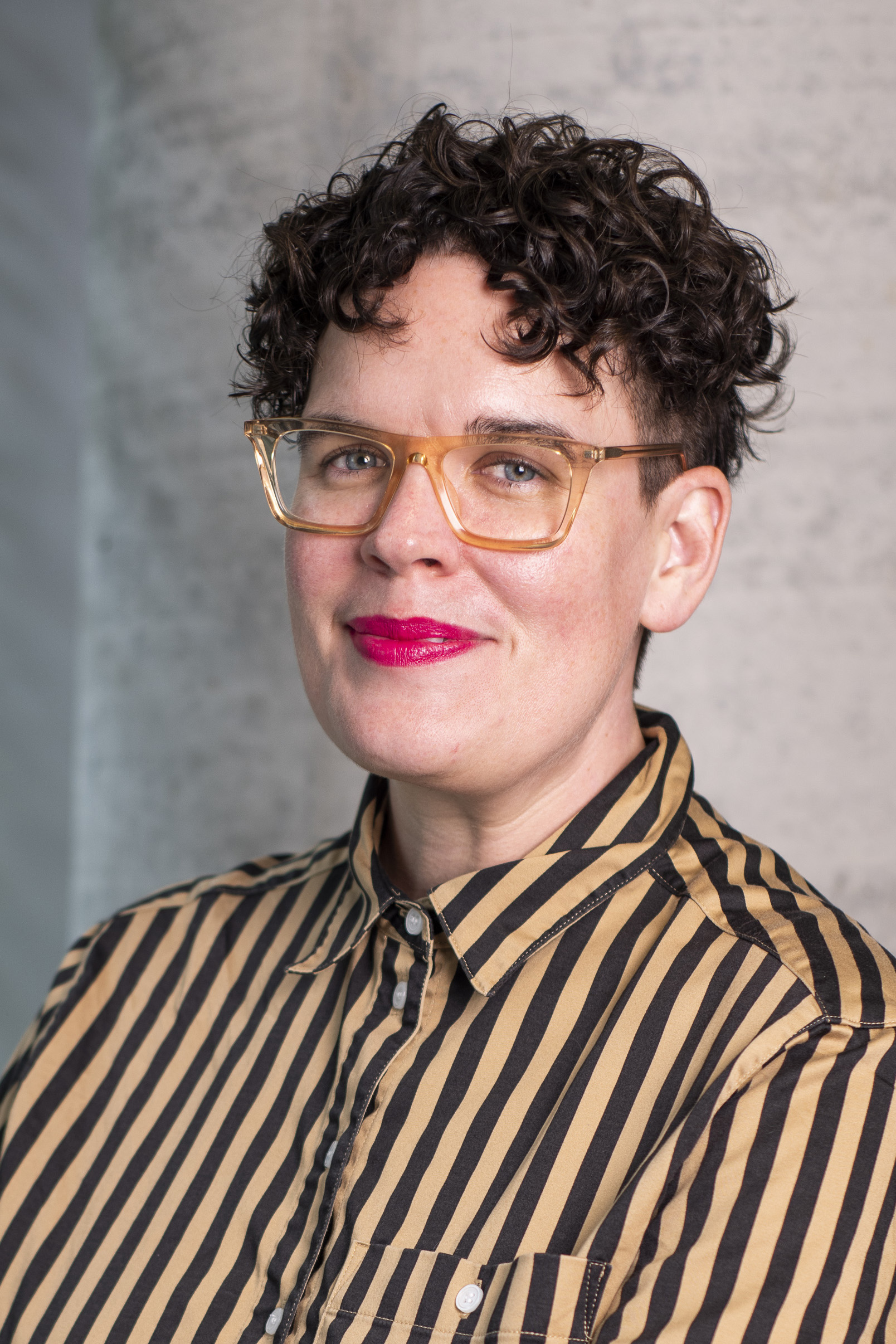For philanthropist Robin Khuda, change begins with opening doors early. For Professor Alice Motion , science thrives when all voices are heard.
Together, they explore how philanthropy, representation and bold ideas can reshape STEM (science technology engineering maths), creating a future where young women and other underrepresented groups don't just enter science, technology, engineering, and mathematics - they lead it.
Robin Khuda
Founder and CEO of data centre provider AirTrunk; founder of the Khuda Family Foundation, which focuses on increasing STEM skills and the number of women in technology.
"After many years in the technology and digital infrastructure sectors, I've seen a persistent gap: too few women in technical and leadership roles. It's a missed opportunity, not just for individuals, but for innovation. The turning point for me came when I realised this wasn't just a recruitment issue. The pipeline itself was broken. Too many young women never get the chance to imagine a future in STEM because the support and the belief in their potential isn't there from the start.
"That's what inspired the Khuda Family Foundation's $100 million partnership with the University of Sydney . As someone who has lived and worked in Western Sydney, I saw the potential. What was missing was the pathway. This isn't about one-off scholarships - it's about early, consistent, and inclusive support. Starting from Year 7, we're building a program that includes tutoring, mentoring, leadership development and guaranteed university entry. It's designed to change mindsets early and create a visible, supported pipeline of future women leaders in STEM.
"We're focusing on students in Western Sydney, where systemic barriers often run deepest. If we can shift outcomes for even a fraction of the 40,000 students we aim to reach, the ripple effects will be transformative, not just for those individuals but for their families, their communities, and the industries they'll help shape."
"But impact doesn't stop at access. Retention and progression matter just as much. At AirTrunk, we've taken bold steps to address this, tying gender pay equity targets to one of the largest sustainability-linked loans in the global data centre industry. That kind of accountability drives real change. We're also investing in women in STEM in Sydney and throughout the Asia-Pacific region through our Social Impact Program, alongside the launch of AirTrunk's PlusOne Sponsorship program, pairing women with senior leaders for six months of mentoring, advocacy and strategic exposure.
"To create lasting change, we need to embed inclusion into the system. In business, what gets measured gets managed. Science and academia can benefit from the same mindset: set bold goals, measure progress transparently, and align incentives to reward inclusive outcomes. Because innovation doesn't thrive in echo chambers - it thrives when different perspectives are empowered and supported.
"We also need to change the conversation. Gender equity in STEM isn't just a social justice issue, it's an economic imperative. Australia needs 1.2 million additional tech workers by 2030. We won't get there unless we unlock the full talent pool. That means making STEM careers visible, viable and welcoming to more women, more girls, and more people from other underrepresented backgrounds.
"What gives me hope is what happens when we do. Through the early stages of this program, I've already met students who, when given the opportunity and belief, are thriving. Their ambition is contagious. Some will become engineers, scientists and CEOs. Others will go on to inspire the next wave. That's the power of structural change: when one door opens, many others follow.
"And that's what we're building - a smarter, fairer, more competitive Australia - one girl, one school, one community at a time."
"Talent is everywhere. Opportunity needs to be too."
Robin Khuda
Professor Alice Motion and Robin Khuda
Professor Alice Motion
Alice Motion is Professor of Science and Culture at the School of Chemistry, University of Sydney
Science shapes the world we live in, yet for too long it hasn't reflected the full diversity of that world. When only certain voices are heard, the questions we ask, the discoveries we prioritise and the solutions we find are limited. That's why diversity in STEM isn't just a matter of fairness - it's essential to better science. It means opening the doors to people from all backgrounds and experiences, and reimagining who gets to belong and lead in scientific discovery.
"Science improves when there is a greater diversity of minds working on its problems. The science itself becomes more interesting - and crucially, the questions we choose to ask can change.
"There are areas of science and medicine - like women's health, or issues affecting marginalised communities - that have been historically overlooked. I can't help but think that if we'd had more women and other underrepresented voices in research earlier, we'd know much more than we do now.
"When I first started studying chemistry, I was fortunate to feel supported. A fantastic teacher inspired me to pursue science over medicine, and that choice changed my life. But I now recognise that my experience isn't the norm for everyone. As I progressed through my career and worked in different countries and contexts, I began to see more clearly how structures in science have been shaped by certain groups and how hard it can be for those who don't fit that mould to feel like they belong.
"That's why representation matters. If students never see scientists who look or live like them, they may never consider STEM as a space in which they can thrive."
"And it's not just about who enters the field, it's about who rises through it. True impact means not only increasing the number of underrepresented students studying STEM but ensuring they're supported into senior roles as professors, CEOs and research leaders. Otherwise, we risk reinforcing new forms of inequity.
"That's what excites me about the Khuda Family Foundation's support. A gift of this size enables long-term thinking. Twenty years of support means programs can be carefully designed, iterated and evaluated. It means we're not just reacting - we're building structures that can last. The promise of 300 women being supported to study STEM from their school years and throughout their studies at the University of Sydney is remarkable. But beyond the numbers, it's the creation of a community of scholars, leaders and changemakers that will impact generations to come.
"Working with young people gives me huge hope. Their openness, their creativity, their sense of what's fair - these qualities constantly inspire me. We don't need to convince them that inclusion matters: they already know. What we need to do is build the systems and cultures that allow them to lead.
"I want science to feel as inviting as a concert or a gallery - places where you don't need credentials to feel welcome, just curiosity. That's why we need to bring science to unexpected spaces: music festivals, schools, community events. It needs to come to people from many different angles. Because the more we meet people where they are, the more likely they are to see themselves in science and the more powerful and inclusive that science will become."
"We need to reimagine who gets to belong in science."
Professor Alice Motion









